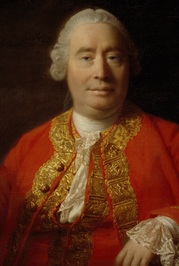 To Curt John Ducasse
To Curt John Ducasse
C/o Brown Shipley & Co 123 Pall Mall, London, S.W.1
Rome. April 19, 1924
It is no ordinary note of thanks that I owe you for your book on “Causation”, because at an age when one has abandoned the hope of learning anything new, you have really taught me something which I hope to keep by me and to incorporate into my philosophy—namely, that causation is not a law but an observable derivation of fact from fact in particular instances. In one sense, like Columbus’ egg, this is not new to me; In fact, something of the sort is said or hinted, by the way, in my “Scepticism and Animal Faith”. If I remember, I say there that when not an arbitrary assignment of magic influence, cause is “the principle of generation in nature”; but this phrase (if it is this phrase) is loose and ambiguous. I meant, however, that the birth of thing from thing is causation—which is what you, in your clearer and more explicit language, now confirm me in believing.
Heartily as I agree with your main thesis, I had a feeling that perhaps you were not in dramatic sympathy with Hume and Mill in their analysis, and avoided the issue that was uppermost in their minds. Even at the end, when you enumerate the senses in which one may ask “why” effect follows on cause, you do not mention what I suspect was their problem, namely, what internal relevance there was between cause and effect, to be the reason for their sequence. People expect to have an insight into this connexion, such as they have in action, or in an answer to prayer, or obedience to an order given, or the execution of a plan. In such cases an image of the consequent is a part of the antecedent, and seems to announce and usher it in; in deduction also the consequence follows because it is contained in the premises. On this ground too identity of substance binds the material and the product in nature more closely together than if they were unsubstantial disjointed perceptions. The change of forms remains unexplained, which you rightly say is all that requires a cause; yet the continuity of substance, which needs no explanations, partly reconciles the observer to that change (which it also keeps within limits) and so gives him a feeling that causation is intelligible, or ought to be so, beneath its actual working. People, in a word, desiderate a dialectical or moral unity in natural sequences, and it was the absence of this desideratum the Hume and Mill pointed out.
I am puzzled by the (very prevalent) habit of calling truth a value. There may be a value in discovering the truth, or some part of it: but what I understand by the truth . . . is something waiting to be recognized and perhaps valued, but not ambiguous or variable with human interest in it.
From The Letters of George Santayana: Book Three, 1921-1927. Cambridge, MA: The MIT Press, 2002.
Location of manuscript: The John Hay Library, Brown University, Providence RI
